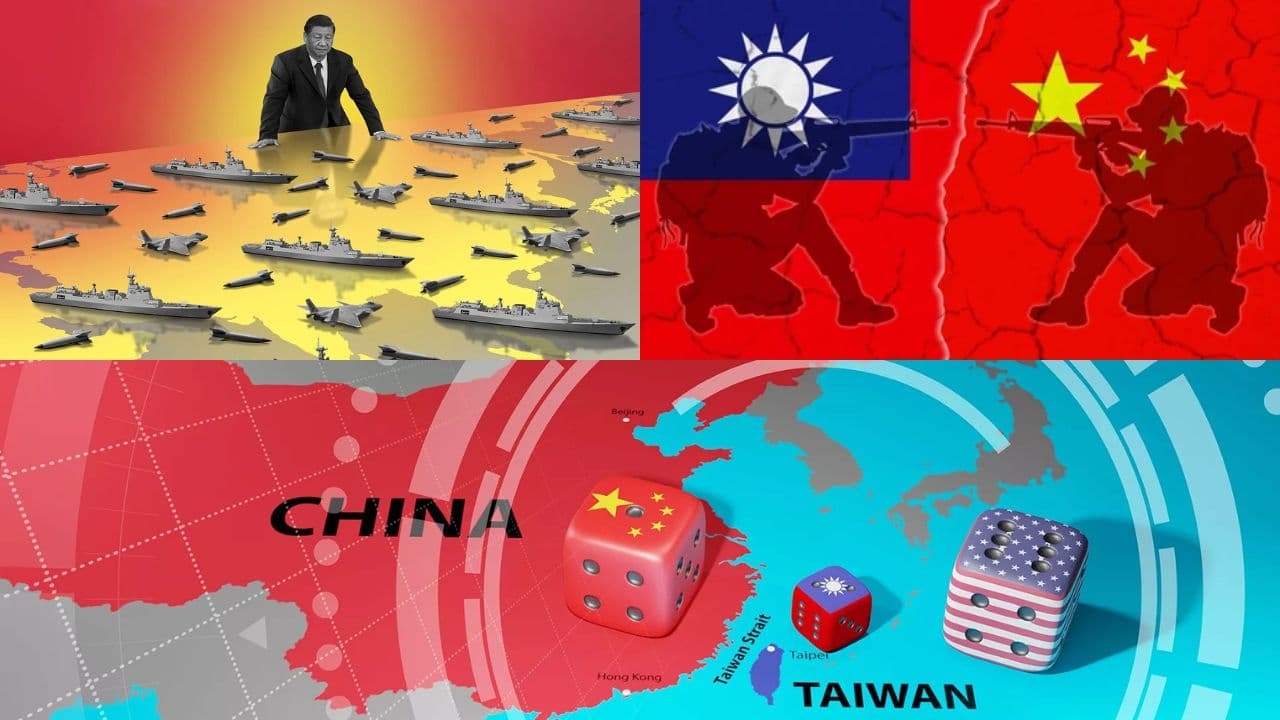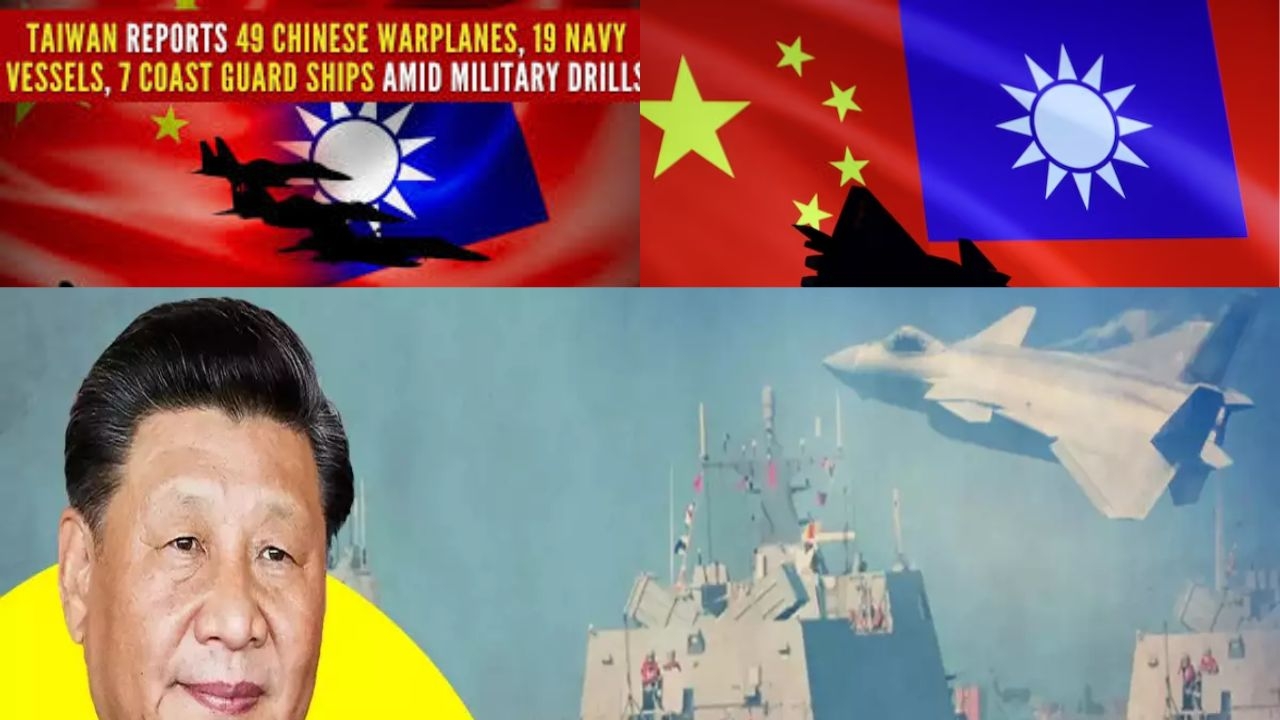China's Dangerous Ambitions: The Growing Threat of Taiwan Annexation and Regional Destabilisation
18 Aug 2024 09:10:10

Over the last few years, China's policy towards Taiwan has been changing from one of habituated quietness to a contentious overbearing stance that places regional stability and even global security in jeopardy. China's intensifying intimidation of Taiwan is therefore an example of its ambitions for regional hegemony and so much else that suggests how badly it represents an element in world politics.
Historical Context and Recent Developments
For China, Taiwan has always been its territory following events in the Chinese Civil War where the defeated Republic of China (ROC) government under Chiang Kai-Shek retreated to the island when they lost mainland power to Communist forces by 1949.
While Taiwan operates as an independent country, Beijing has never withdrawn the claim to Taiwan and declared it a core part of his government's national policy that one day, on two separate occasions, the breakaway territory will be under Chinese control.
But during the past few years, China's tone and actions have sounded much louder. The U.S. Secretary of State Antony Blinken told the hearing that China had ramped up its plan to take over Taiwan in the coming future, where it would rely on more violent tactics against the island country.
Taiwan’s Strategic Importance
Taiwan is a global centre of semiconductor manufacturing—the lifeblood for modern industry that goes into everything from mobile phones to fighter jets. Any significant disruption to Taiwan's semiconductor sector at the hands of Chinese bellicosity would grind global economy gears most horribly.
The Taiwan Strait, moreover, is one of the busiest sea lanes in the world and home to a significant proportion of global shipping traffic. If military action takes place in this area, then it would be a significant disruption to the global flow of trade.
China's Motives: Beyond Reunification
China is interested in annexing Taiwan for a number of reasons, some symbolic and others strategic. Ever since Xi Jinping took power, the Chinese Communist Party (CCP) has portrayed "reunification" with Taiwan as a basic precondition for achieving "the great rejuvenation of the Chinese nation." This is the storyline that has been tightly knit into the CCP's narrative.
But the repercussions of this ambit are many. This move by China tends to show it is more of an asserting power in the Asia-Pacific region. At the moment, Taiwan blocks China's territorial access to the Pacific Ocean, and if Beijing were to annex it into its boundaries, this critical geo-strategic bottleneck would fall under Chinese influence, contributing towards a full-scale regional hegemonic control by China. It would also serve notice to other nations in the region whose future may not be predictable.
Chinese Incursions: A Persistent Threat
One of the key elements to China's abusive behaviour towards Taiwan has been its consistent military intrusions in and around Taipei's air defence identification zone (ADIZ). Such breaches have expanded in numbers, with Chinese military planes now often challenging Taiwan's ADIZ. They are designed to frighten Taiwan, collect intelligence, and also overstretch Taiwan's air force as it scrambles jets in response.

Just this year, which saw a record number of incursions by Chinese military aircraft, including some with dozens of jets at once in Taiwan. It must be recognised that these incursions are part of a broader "grey zone" strategy—not just isolated incidents.
The PLA is utilising the grey zone as an instrument to pressure or probe Taiwan's endurance and readiness without first triggering their kinetic forces for open warfare on home territory. These incursions also amount to psychological warfare, meant to erode the morale of the Taiwanese people and send a warning signal that Beijing is serious about its territorial claims.
The International Response and Potential Consequences
A flagging international community, most of all, has been cited expressing grave concerns over Beijing's intention toward Taiwan. The United States has long followed the policy of strategic ambiguity concerning Taiwan, balancing its "One China" policy with the commitment to supporting Taiwan's self-defence capability. With the crescendo of China's aggressive stance, pressure mounts on the U.S. for a more definitive stand.
That does not prevent a risk of conflict staying contained in the Taiwan Strait, either. A Chinese invasion of Taiwan could well prompt a wider military conflict—one involving not just the U.S. but regional powers like Japan and Australia.
Nowhere is there likely to be a more volatile or higher-stakes situation in global geopolitics, let alone a possible war with China, than a Chinese invasion resulting in a wider military conflict that would not only destroy Taiwan but also amount to a broad reshuffle in global power structures.
Taiwan’s Response
Military Readiness and Modernisation: Much is being done by Taiwan to improve military readiness against any potential Chinese invasion. Under President Lai Ching-te, the Taiwan administration has strongly pitched the need for military preparedness coupled with modernization of its Defence Forces.
Taiwan increased the budget allocated towards spending on defensive weapons—anti-ship missiles, drones, air defence systems—and other advanced armaments to deter or repel an amphibious assault by China. Besides, Taiwan has been focusing on the establishment of asymmetrical warfare capabilities to counter an adversary with an extremely large and formidable military force by executing unconventional tactics.
Strengthening of international Alliances: Taiwan is putting greater and more sincere efforts into strengthening its alliance with the United States and other democratic nations. The U.S. remains Taiwan's most powerful ally in terms of arms sales and political support to enhance Taiwanese defence capabilities.
It was in the recent past that the United States strengthened its military presence in the Asia-Pacific region. In addition, it carried out combined military drills with Taiwan as an assurance toward defending it. It is also looking to deepen ties with Japan, Australia, and European countries, building a broader coalition to deter Chinese aggression.
Domestic Resilience and Unity: Taiwan's government is working to ensure that there is national unity and resilience in the face of mounting Chinese pressure. Among these efforts are enhancing the cyber defences of this island from a potential attack or misinformation campaign by a state actor from China.
He has also emphasised national morale and urged citizens to be vigilant, keeping an eye on preparation against any prospective conflict. Taiwan's leadership knows very well that if there is unity, with a strong stand and one voice, then that will deter China from aggression, ensuring security on the island.
Diplomatic Efforts and International Advocacy: Despite the military focus, Taiwan is not ceasing to make diplomatic efforts in avoiding conflict in any way. The Taiwanese government still goes on talking about peaceful dialogue with Beijing, insisting that any solution to the cross-strait tensions has to be decided upon by Taiwan's people. Much simultaneously, Taiwan has been conducting international advocacy in an effort to secure greater recognition and support.
This underscores that China's actions pose a threat not only to Taiwan but also to the wider community of states. Taiwan's leaders are striving to ensure that any annexation move by China against Taiwan would elicit universal condemnation and possibly coordinated sanctions against Beijing.
Conclusion: A Dark Path Forward
The relentless pursuit of Taiwan by China is more than a regional issue; it's a global problem capable of upsetting the current world order. Annexation, which would amount to forcing Taiwan into merging, is such a flagrant violation of international norms that it has a high potential for general war, economic dislocation, and fundamental shifts in geopolitical alignments worldwide.
The coercive methods employed by China can never be allowed to go unchallenged by the international community. What Beijing needs to hear loud and clear is this: while diplomatic efforts toward the maintenance of peace and stability pursue their course, there should be a clear message in case annexation by force of Taiwan is attempted—it would mean catastrophe. Taiwan's future should be determined by its people, free from the shadow of Chinese aggression.
Article by
Shomen Chandra
Sub Editor, The Narrative